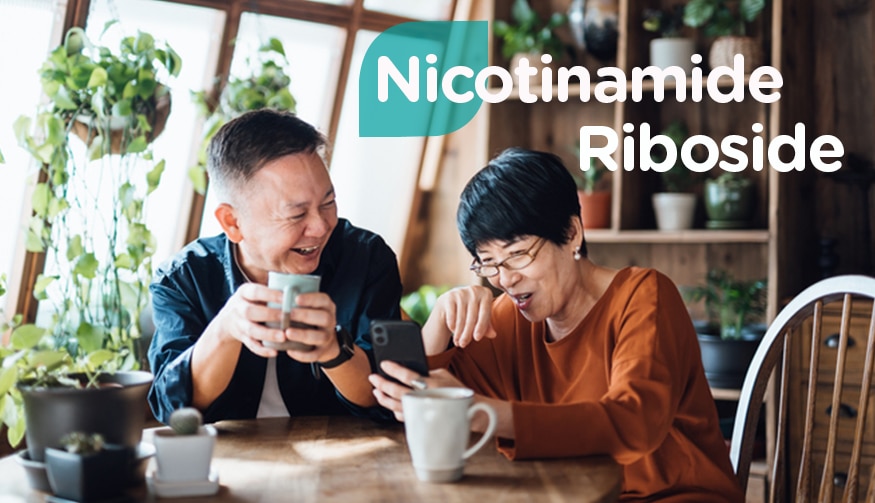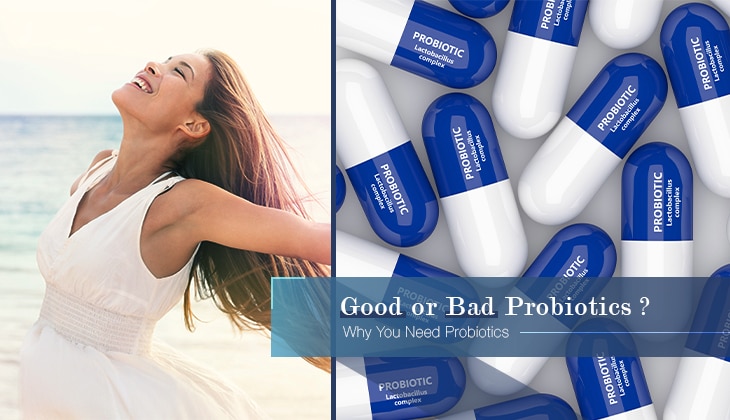Nicotinamide riboside is a micronutrient that effectively increases your levels of NAD+, or nicotinamide adenine dinucleotide. It’s essentially a form of vitamin B3, but is structurally and biochemically different from niacin and nicotinamide, the other forms of vitamin B3.
What is NAD+?
NAD+ is a coenzyme, working as an essential partner in cellular energy production. As a coenzyme, NAD+ works alongside several enzymes in the mitochondrial membrane, hence the prefix “-co” in its name. They are your enzyme’s best friend, helping fuel the “cellular machine” that creates the energy needed by every major function in your body on a cellular level.
Due to its critical role in cellular energy production, the absence of NAD+ in your body would render most bodily functions useless. Without NAD+, your lungs would not be able to draw in oxygen, your heart would not be able to pump blood, and your brain synapses wouldn’t be able to fire.
NAD+ also has a secondary job of importance outside of cellular energy production. NAD+ helps facilitate DNA repair and regulate cellular activity by working with sirtuins and poly (ADP-ribose) polymerase (PARPs), key enzymes involved in regulating cells’ response to damage from things like overeating, drinking, lack of sleep, lack of exercise, and sun exposure.
Why is NAD+ a big deal?
Research in 2012 from a team at the Department of Pharmacology at the University of New South Wales showed age-associated changes in NAD metabolism. The study revealed NAD+ levels decline by up to 50% in human skin tissue between the ages of 40-60 and that NAD+ depletion may play an important role in the aging process. In the paper, the researchers stated, “A strong negative correlation was observed between NAD+ levels and age in both male and females.”

In addition, NAD+’s involvement in cellular respiration, particularly in the mitochondria, contributes to overall mitochondrial health. One of the hallmarks of aging is a process known as “mitochondrial dysfunction”, which is linked to many age-related conditions. In recent years, research has focused on gaining a better understanding of NAD+’s role in addressing these mitochondrial-related problems.
How does nicotinamide riboside work?
Nicotinamide riboside is a precursor to NAD+, meaning that it serves as a “building block” to make the NAD+ molecule. Nicotinamide riboside is like a starter molecule, your body uses it to build the NAD+ molecule on its own.
Supplementation with nicotinamide riboside is clinically proven to increase NAD+ levels. It turns out that this is more effective than supplementing with NAD+ itself. NAD+ is a very large molecule that is unable to enter the cell directly. Rather, your body must first break it down to smaller pieces before passing through the cell membrane. The pieces are reassembled on the inside of the cell. The breakdown and reassembly makes the process less efficient at increasing NAD+ in the cell.
Also, in capsule form, NAD+ as a straight ingredient degrades quickly when exposed to light and heat. An FDA briefing document denotes the molecule’s inability to survive in a capsule form under ordinary storage conditions.
Compared to straight NAD+, nicotinamide riboside can enter the cell directly without requiring a breakdown.
Where do we get nicotinamide riboside?
Nicotinamide riboside is naturally found in minute quantities in dairy milk and yeast. You would have to consume a lot of milk to achieve any noticeable difference in nicotinamide riboside in your diet. For example, the amount of nicotinamide riboside in a 250-mg supplement is more than 1,000 times the amount in an 8-ounce glass of milk.
Currently, the best way to take nicotinamide riboside is in supplement form. The recommended serving size is 300mg per day. A study published in Scientific Reports indicates that NAD+ levels will be significantly elevated after two weeks.

How safe is nicotinamide riboside?
There are several supplements on the market that have nicotinamide riboside as an active ingredient. However, ChromaDex, the patent holder of Niagen®—a proprietary form of nicotinamide riboside, is the only form that has been successfully notified to the Food and Drug Administration (FDA). Niagen® is the subject of a total of three FDA safety notifications whereas other nicotinamide riboside supplements hold none.
Niagen® is also the only form of nicotinamide riboside that has been successfully reviewed twice under the FDA’s New Dietary Ingredient Notification (NDIN) program. Achieving FDA acceptance of an NDIN is a major accomplishment as it is a highly rigorous process. Very few companies that do submit an NDIN to the FDA receive a no-objection.
Niagen® is also the only form of nicotinamide riboside to be successfully notified to the FDA as Generally Recognized As Safe (GRAS). A FDA no objection to a GRAS notification is a recognition of the quality of the science and the safety of the ingredient.

As for products on the shelf, Tru Niagen®, ChromaDex’s consumer product of nicotinamide riboside, bears the NSF Certified for Sport® seal. The Certified for Sport® certification includes current Good Manufacturing Practice (cGMP) certification of the Tru Niagen manufacturing facility, and testing to confirm the absence of over 270 athletic banned substances and harmful contaminants like lead and arsenic.
cGMP regulations require manufacturers to take proactive steps to guarantee the identity, strength, quality, and purity of their products.
In addition to the US, Niagen® has achieved regulatory acceptance in Canada, the European Union and Australia.
So although there are several forms of nicotinamide riboside, Niagen® is the only patented form that has gone through the regulatory procedures to ensure safety in key markets around the world. The safety of other forms is unclear and unpublished.
How does it compare with other NAD-boosting supplements?
We know the best way to increase your NAD+ is by supplementing with a precursor, however, there are several NAD+ precursors on the market other than nicotinamide riboside. How do you know which one is best for you?
Specifically, in comparison to other forms of vitamin B3, such as niacin or nicotinamide, nicotinamide riboside bypasses several steps that niacin and nicotinamide have to go through in the creation of NAD+. Tryptophan is an amino acid that also converts to NAD+, however, it takes a six-step pathway to get there. Tryptophan takes the longest route to increase your NAD+ levels.
In a speed and availability comparison, nicotinamide riboside is the fastest way to increase NAD+ due to its simplicity in building NAD+. It’s more readily used by your body than any other NAD+ precursor.

Also, some precursors have notable side effects. Niacin can cause skin flushing, burning sensations, and itching. In comparison, its successor, nicotinamide, has no visibly noticeable side effects and is actually an effective NAD+ booster. However, nicotinamide can inhibit sirtuin activity, negatively impacting a different function in your cells that promotes and supports mitochondrial health and cellular repair.
Nicotinamide mononucleotide, or NMN, is often pitted against nicotinamide riboside. However, NMN is still largely untested in humans with only one published clinical study that did not report any effects of NMN on NAD+ levels. A study published in Nature Communications on NMN’s metabolism in mammalian cells states that NMN cannot enter your cells directly, and must convert into nicotinamide riboside before it enters.
It’s also important to note that niacin and nicotinamide have been around for many years and appear in many different products, such as multivitamins and breakfast cereals. As such, the FDA considers these vitamin B3 forms to be safe and has “grandfathered” their use. Nicotinamide riboside and NMN, however are much newer, and don’t enjoy the long history of use as the other vitamin B3s. But unlike Niagen®, NMN has not been subjected to any regulatory review by any authoritative government body anywhere. Therefore, the safety of NMN as a NAD+ precursor supplement is unknown and unproven at this time.
The future of nicotinamide riboside
Nicotinamide riboside is unique in that your body can readily use it as a resource for NAD+ production. It’s benefits are not limited to mitochondrial health and sirtuins. General interest in NAD+ has garnered more interest in NAD+ precursor research as a whole, bringing nicotinamide riboside into the conversation. Many studies are underway surrounding the positive effects of nicotinamide riboside on other health issues. Studies examining the effect of nicotinamide riboside on brain health, muscle function, and heart health are also in tow.
Nicotinamide riboside continues to be the one ingredient at the center of the NAD+ conversation with several completed human trials and many more underway. It’s only a matter of time before nicotinamide riboside starts to raise possibilities as a more holistic approach to maintaining general health.










